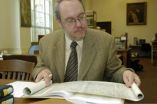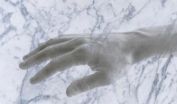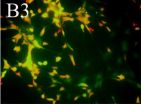(Press-News.org) If you weren't careful, you might end up beaten by grape thieves skulking in the darkness.
A University of Cincinnati graduate student writes about the contractual obligations of vineyard guards and researchers from around the world contribute more stories from ancient times in the most recent volumes of the Bulletin of the American Society of Papyrologists (BASP).
UC's Peter van Minnen, associate professor of classics, has edited the international journal since 2006. BASP is an annual collection of articles and reviews pertaining to important discoveries from around the world in the field of papyrology – the study of ancient texts on papyrus and other materials.
The latest volume of BASP is the 50th in the series and the eighth to have been edited at UC. The recently published journal features 35 contributions from 26 writers from 11 countries. The previous year's volume features 44 contributions from 41 writers from 14 countries. Each of the past two volumes includes content in three languages.
In "Guarding Grapes in Roman Egypt (P.Mich. inv. 438)," UC graduate student Kyle Helms details what he deciphered from a roughly 3-by-5 inch shred of dark brown papyrus dating back to the fourth century.
In large, cursive script, the hired guard outlines his labor contract: "I agree that I have made a contract with you on the condition that I guard your property, a vineyard near the village Panoouei, from the present day until vintage and transport, so that there be no negligence, and on the condition that I receive in return for pay for all of the aforementioned time" an unknown amount of money, as the papyrus is broken off at the bottom.
In his contribution, Helms references another papyrus record of a vineyard guard who was beaten by "violent and rapacious" criminals while attempting to chase them from the vineyard.
INFORMATION:
Other UC research published in the latest volumes of BASP include:
"A Cancellation of a Contract of Debt from Hermopolis" by Andrew Connor, classics graduate student, BASP 49
"P. Tebt. 2.562: Conclusion of a Report of Proceedings" by Taylor Coughlan, classics graduate student, BASP 50
Guarding grapes and other tales from papyri
The latest volume of a University of Cincinnati-edited papyrus research journal throws light on the perils of produce patrol and more stories from ancient times
2014-03-24
ELSE PRESS RELEASES FROM THIS DATE:
Lots of carbon dioxide equivalents from aquatic environments
2014-03-24
Large amounts of carbon dioxide equivalents taken up by plants on land are returned to the atmosphere from aquatic environments. This is the conclusions from a study carried out by two students at Linköping University, Sweden.
As students at the Master program Science for Sustainable Development in Linköping, Bala Panneer Selvam and Sivakiruthika Natchimuthu, did a thorough investigation of greenhouse gas emissions from many types of inland waters in India under supervision by Dr Lakshmanan Arunachalam, Tamil Nadu Agricultural University, India, and Dr David Bastviken, ...
A towel less: How psychologists harness sociability to cut waste
2014-03-24
Hotel guests can be gently persuaded to reduce the number of towels they use each day, psychology researchers at the University of Luxembourg have found. With fewer towels to wash, this reduces the waste of water, energy and detergent. This is good news for the environment and it cuts costs, so enabling hotels to reduce prices.
Two hotels in Swiss and Austrian ski resorts helped with an experiment in early 2013. Three different signs were placed separately in different bathrooms, all of which gently reminded guests of the environmental impact of towel use. However, one ...
Microfluidic device with artificial arteries measures drugs' influence on blood clotting
2014-03-24
A new microfluidic method for evaluating drugs commonly used for preventing heart attacks has found that while aspirin can prevent dangerous blood clots in some at-risk patients, it may not be effective in all patients with narrowed arteries. The study, which involved 14 human subjects, used a device that simulated blood flowing through narrowed coronary arteries to assess effects of anti-clotting drugs.
The study is the first to examine how aspirin and another heart attack prevention drug respond to a variety of mechanical blood flow forces in healthy and diseased arteries. ...
Would you believe your hand could turn into marble?
2014-03-24
This news release is available in German.
The study was published in the international scientific journal PLOS ONE on 13 March 2014.
To induce an illusory perception of the material properties of the hand, a group of neuroscientists from Bielefeld University, the Max-Planck Institute for Biological Cybernetics (Germany), and the University of Milano-Bicocca (Italy) asked volunteers to sit with their hands lying on a table in front of them. They repeatedly hit the participants' right hands gently with a small hammer while replacing the natural sound of the hammer ...
Hot nanoparticles for cancer treatments
2014-03-24
This news release is available in German. If you put your hand over a switched-on torch in the dark, it appears to glow red. This is because long-wavelength red light beams penetrate human tissue more effectively than short-wavelength blue light. ETH Zurich researchers exploit this fact in a new kind of nanoparticles: so-called plasmonic particles, which heat up when they absorb near-infrared light. This could enable them to kill tumour tissue with heat, for instance.
Gold is a popular material for nanoparticles used therapeutically, as it is well tolerated and ...
Nature Immunology study finds novel population of neutrophils
2014-03-24
Case Western Reserve University researchers have discovered a novel population of neutrophils, which are the body's infection control workhorses. These cells have an enhanced microbial killing ability and are thereby better able to control infection.
Neutrophils, the body's most abundant type of white blood cells, have long been regarded as first responders that kill fungi, bacteria, and other pathogens. In a study published in the February issue of Nature Immunology, Case Western Reserve researchers explain that they have found the mechanism of action of a newly discovered ...
GDNF transfection promotes neuronal differentiation of bone marrow mesenchymal stem cells
2014-03-24
Studies have shown that the differentiation rate of grafted bone marrow mesenchymal stem cells into mature neuron-like cells is very low. Therefore, it is very important to establish an effcient and stable induction protocol to promote the differentiation of bone marrow mesenchymal stem cells into neuron-like cells in vitro and elucidate the mechanisms underlying differentiation for the treatment of central nervous system diseases. Jie Du and colleagues from Sichuan University in China found that glial cell line-derived neurotrophic factor/bone marrow mesenchymal stem cells ...
Electroacupuncture effect on depression and variation of polygenes expression
2014-03-24
Preliminary basic research and clinical findings have demonstrated that electroacupuncture therapy exhibits positive effects in ameliorating depression. However, most studies of the underlying mechanism are at the single gene level; there are few reports regarding the mechanism at the whole-genome level. Using a rat genomic gene-chip, Dr. Dongmei Duan and co-workers from General PLA Hospital in China profiled hippocampal gene expression changes in rats after electroacupuncture therapy. Electroacupuncture therapy alleviated depression-related manifestations in the model ...
Tecnalia presents a smart home able to detect symptoms of neurodegenerative diseases
2014-03-24
The world population is rapidly ageing, which means the number of disabled and dependent people is increasing since these rates increase with age, particularly after the age of 80. This is the context in which the Tecnalia centre for applied research has designed a system of sensors which when fitted in a home, allows a person's habits and activities to be monitored and any changes in his/her habits and activities that could be a symptom of disorders relating to neurodegenerative diseases like Alzheimer's to be detected.
Since the symptoms of diseases like Alzheimer's ...
'MaMTH' advance: New technology sheds light on protein interactions
2014-03-24
TORONTO — Scientists have a better way to study human proteins — large molecules that are part of every cell in the body — thanks to a new technology developed by University of Toronto researchers. The technology tracks a class of proteins called membrane proteins as they interact with other proteins to either maintain health or contribute to disease.
Membrane proteins make up about one third of all proteins in the human body, and their malfunction is associated with more than 500 diseases. But they've been hard to study because understanding their role depends on observing ...
LAST 30 PRESS RELEASES:
COVID-19 vaccination during pregnancy may help prevent preeclampsia
Menopausal hormone therapy not linked to increased risk of death
Chronic shortage of family doctors in England, reveals BMJ analysis
Booster jabs reduce the risks of COVID-19 deaths, study finds
Screening increases survival rate for stage IV breast cancer by 60%
ACC announces inaugural fellow for the Thad and Gerry Waites Rural Cardiovascular Research Fellowship
University of Oklahoma researchers develop durable hybrid materials for faster radiation detection
Medicaid disenrollment spikes at age 19, study finds
Turning agricultural waste into advanced materials: Review highlights how torrefaction could power a sustainable carbon future
New study warns emerging pollutants in livestock and aquaculture waste may threaten ecosystems and public health
Integrated rice–aquatic farming systems may hold the key to smarter nitrogen use and lower agricultural emissions
Hope for global banana farming in genetic discovery
Mirror image pheromones help beetles swipe right
Prenatal lead exposure related to worse cognitive function in adults
Research alert: Understanding substance use across the full spectrum of sexual identity
Pekingese, Shih Tzu and Staffordshire Bull Terrier among twelve dog breeds at risk of serious breathing condition
Selected dog breeds with most breathing trouble identified in new study
Interplay of class and gender may influence social judgments differently between cultures
Pollen counts can be predicted by machine learning models using meteorological data with more than 80% accuracy even a week ahead, for both grass and birch tree pollen, which could be key in effective
Rewriting our understanding of early hominin dispersal to Eurasia
Rising simultaneous wildfire risk compromises international firefighting efforts
Honey bee "dance floors" can be accurately located with a new method, mapping where in the hive forager bees perform waggle dances to signal the location of pollen and nectar for their nestmates
Exercise and nutritional drinks can reduce the need for care in dementia
Michelson Medical Research Foundation awards $750,000 to rising immunology leaders
SfN announces Early Career Policy Ambassadors Class of 2026
Spiritual practices strongly associated with reduced risk for hazardous alcohol and drug use
Novel vaccine protects against C. diff disease and recurrence
An “electrical” circadian clock balances growth between shoots and roots
Largest study of rare skin cancer in Mexican patients shows its more complex than previously thought
Colonists dredged away Sydney’s natural oyster reefs. Now science knows how best to restore them.
[Press-News.org] Guarding grapes and other tales from papyriThe latest volume of a University of Cincinnati-edited papyrus research journal throws light on the perils of produce patrol and more stories from ancient times



